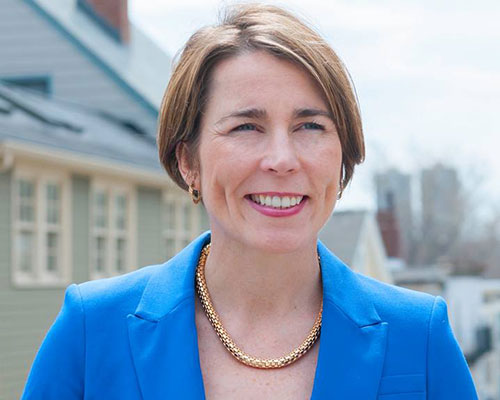Massachusetts Attorney General Maura Healey today hailed the decision of the U.S. Supreme Court to strike down the remaining sections of the now-illegal 1996 Defense of Marriage Act (DOMA).
The high court decisions allows same-sex marriage to become law in all 50 states and U.S. possessions.
“Today’s decision by the supreme court is a huge victory for the equality and dignity of all Americans. The right to marry the person you love is finally the law of the land, and it’s about time. In Massachusetts, we fought for and won this freedom more than 10 years ago. We have seen how marriage equality makes a real difference in the lives of couples and their children, and now the rest of the country will get to see the same. This ruling also ensures that families will not have to worry about losing essential legal protections when they travel or move out-of-state. I am so proud of all of the work that so many put into this effort to make today’s ruling a reality,” Healey said in a statement.
In 2009, Healey led the commonwealth’s successful challenge of DOMA, arguing the law discriminated against married Massachusetts couples and their children. In June 2013, the Supreme Court struck down DOMA as unconstitutional, relying significantly on many of the arguments developed in the commonwealth’s case.
In 2010, Tim Coco and Genesio J. Oliveira Jr. of Haverhill played a role in knocking down DOMA by becoming the first same-sex, bi-national married couple to be reunited on U.S. soil. The couple was separated by an immigration judge who did not recognize the validity of their Massachusetts marriage. Then-U.S. Senator John F. Kerry played a key role in removing federal obstacles that kept the couple separated three years. Coco is president and general manager of WHAV.
In March, Healey led a filing of an amicus brief with the U.S. Supreme Court on behalf of Massachusetts and 16 other jurisdictions, including California, Connecticut, Delaware, the District of Columbia, Illinois, Iowa, Maine, Maryland, New Hampshire, New Mexico, New York, Oregon, Pennsylvania, Rhode Island, Vermont and Washington. The states argued the Constitution requires marriage equality nationwide.
Healey has argued the continued refusal by some states to license or recognize marriages between gay and lesbian couples inflicted widespread harm on these couples and their families, including those living in Massachusetts and other marriage equality states. Major life decisions made by married same-sex couples, including about health care, education, employment and residency, had been affected by the non-recognition of their marriages. At times, many couples refused to move to or simply avoided non-recognition states whenever possible.
Healey’s court brief was inspired, in large part, by a number of testimonials submitted by gay and lesbian couples and their families across Massachusetts, after the office sought input from the public. These stories can be found on Healey’s Marriage Equality Facebook page.
In 2004, following the Massachusetts Supreme Judicial Court’s decision in Goodridge v. Department of Public Health, Massachusetts became the first state to allow same-sex couples to marry. Since that time, more than 20,000 same-sex couples have married in the commonwealth.

